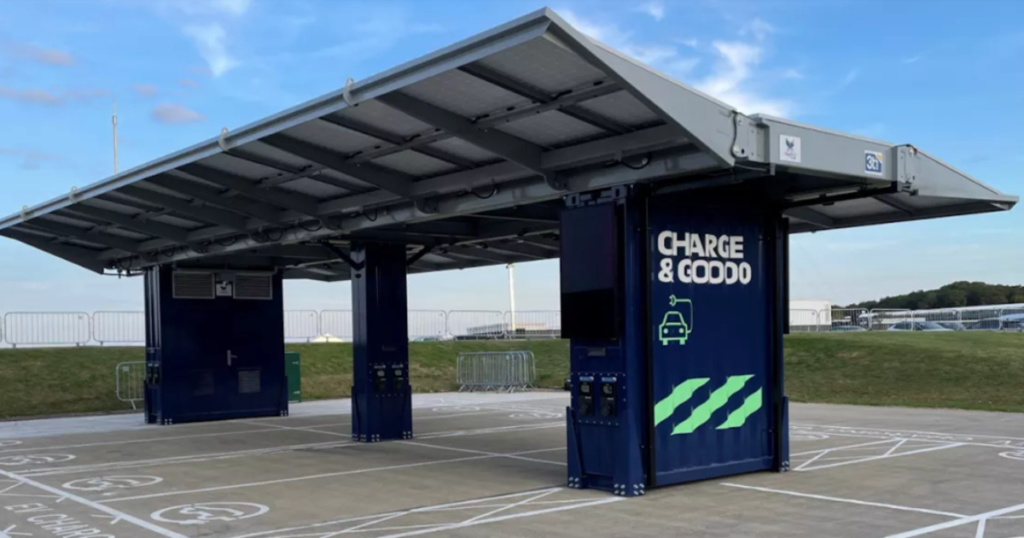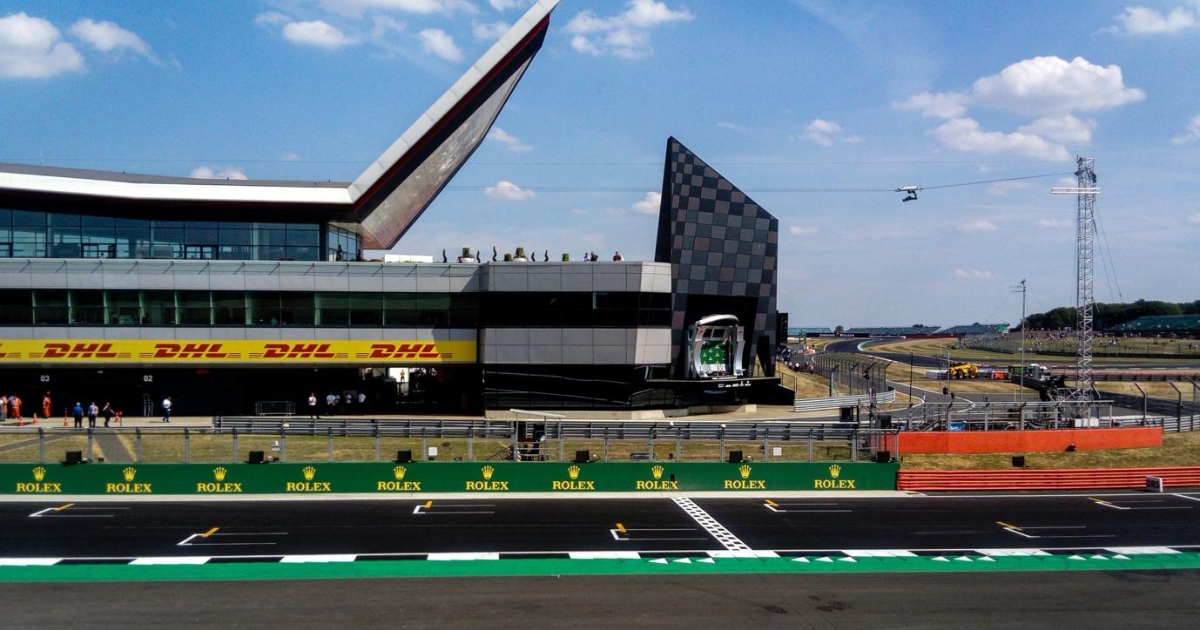Renewable energy, fan experience, food surplus and waste management—these are just a few of the many initiatives taken by Silverstone Circuit as part of their ambitious Shift to Zero strategy that aims to reduce their carbon footprint by 50% by 2030 and reach net zero by 2040.
With the British GP approaching this weekend July 5th – July 7th, we believe it’s important to share Silverstone circuit’s achievements in their sustainability journey, and use its example to hopefully inspire other sport’s organisations to follow their lead and take action.
Electricity, Sustainable Sources and Accreditation
Thanks to their extensive efforts, in 2023 Silverstone Circuit achieved the ISO14001 Certification and the FIA 3* Environmental Accreditation. The circuit installed 2,764 solar panels on the Wing and 24 electric vehicle charging points, introduced HVO biofuel for all generators and switched 50% of their lighting to LEDs. In addition, the Silverstone team ensured that all electricity came from renewable sources and providers for their three main annual events, including the 2024 F1 British GP.
Stéphane Bazire, Head of Business Sustainability, said: “I am delighted with the progress we have made throughout 2023. The arrival of 24 EV chargers on site last summer and the switch to 100% renewable energy powering our site were significant moves forward and have been extremely well received by our staff, clients and visitors.”
Silverstone aims to have 100% of their waste being re-used, recycled, or composted by 2026. To achieve this, 27 water refill stations were installed on site reducing single-use plastic bottles by 780.000 units in 2023. The circuit even managed to exceed their recycling target for the year!
It is clear that fans travelling to sporting events creates a significant environmental impact. By diversifying camping availability, investing in shuttle buses and introducing a fan travel survey to collect data, Silverstone is committed to increasing and facilitating sustainable fan travel.

Community
The circuit took another step forward in 2023 with their continued commitments to engage with the local community. In collaboration with Milton Keynes College and Silverstone UTC they provided 50+ students with a first-hand practical work experience at the F1 British GP. In addition, the circuit collaborated with local Towcester Community Larder (TCL) to donate and redistribute 22 tonnes of surplus food from its events to support local families and reduce food waste.
“We are not resting on our laurels, we have set ourselves some big challenges for 2024, including an ambition to recycle 50% of our waste, however, given the manner at which the Silverstone team and our partners have embraced our Shift to Zero strategy in the last few years, I am confident we will achieve all we set out to and more’’, Bazire finally commented.
Silverstone’s Shift to Zero and best practice for F1 GP circuits
Renewable energy, fan experience, food surplus and waste management—these are just a few of the many initiatives taken by Silverstone Circuit as part of their ambitious Shift to Zero strategy that aims to reduce their carbon footprint by 50% by 2030 and reach net zero by 2040. With the British GP approaching this weekend July 5th - July 7th, we believe it’s important to share Silverstone circuit’s achievements in their sustainability journey, and use its example to hopefully inspire other sport’s
Establishing a Framework for Sustainable Event Management in Sport
By Enovation Consulting The popularity of sports and increased spectatorship has resulted in the organization of much larger events to accommodate and capitalize on this growth. Thanks to their size and the scope to make events more entertaining by offering added amenities and extra activities, sporting events have a significant environmental impact and social influence. For instance, a 2020 report found that the sport industry was responsible for 350 million tCO2e, whilst the BBC noted that the 2022 Qatar World Cup




